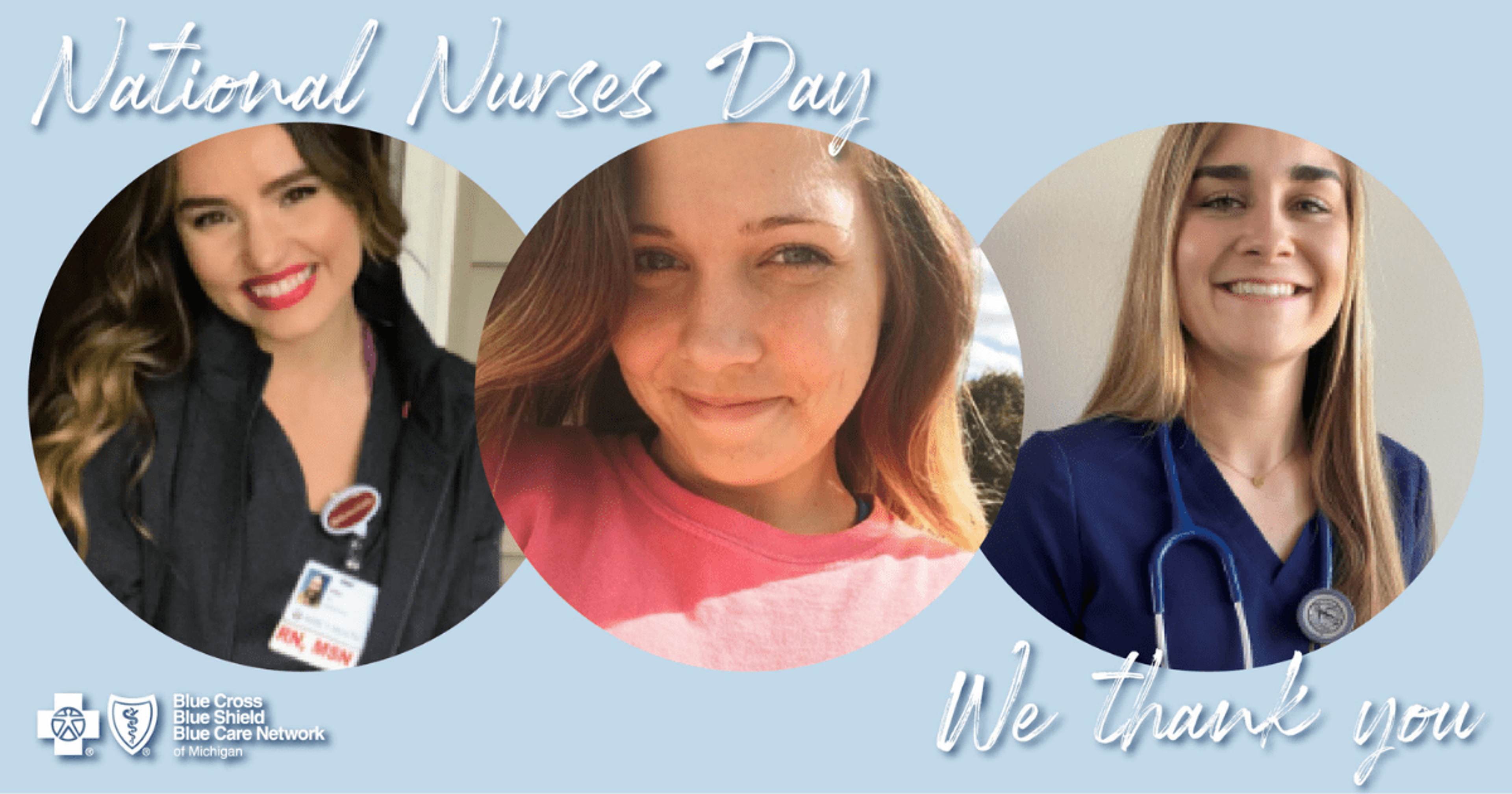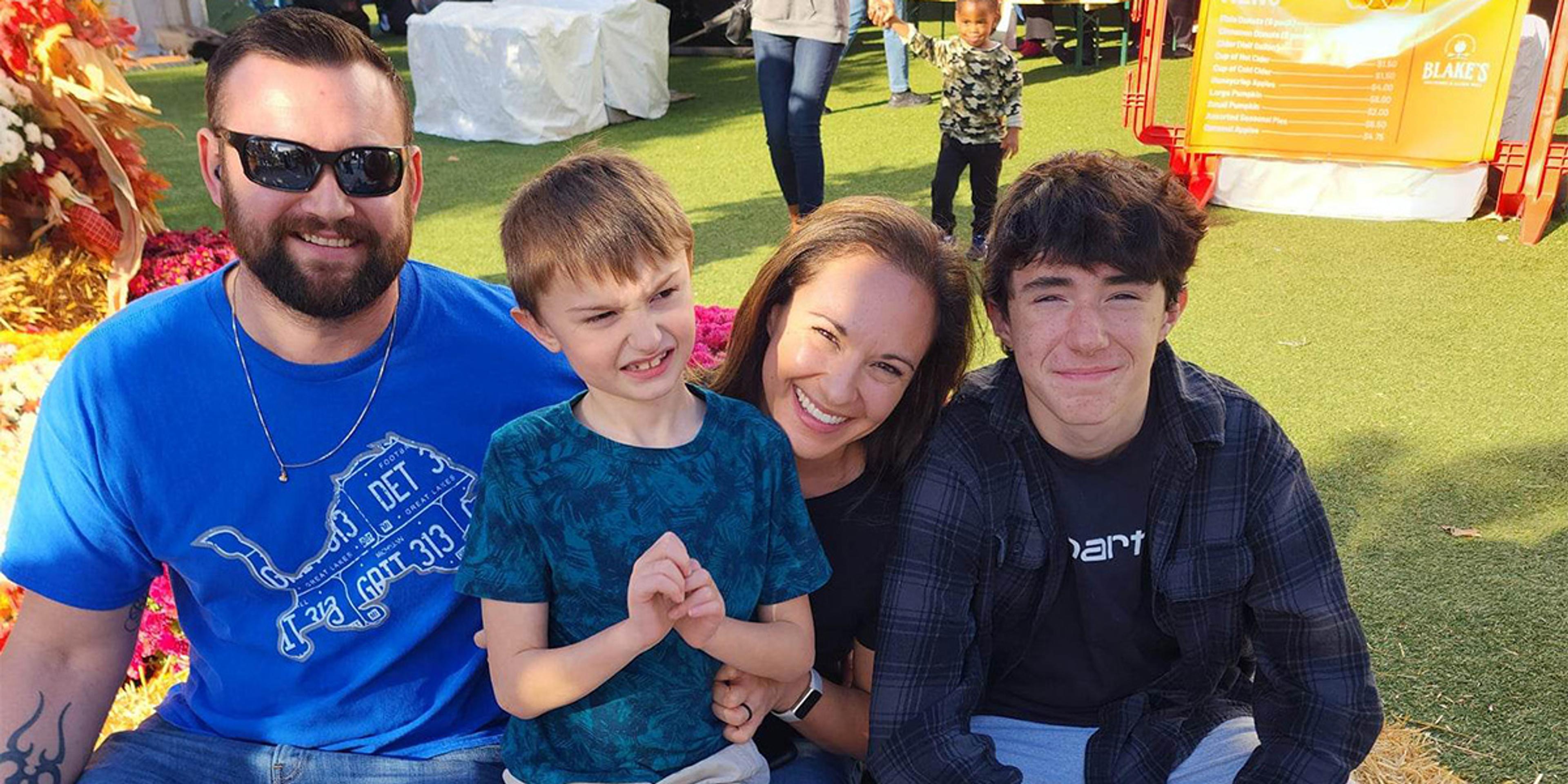
A new generation of nurses has come into the profession during a health care crisis and, while the experience has been grueling, it has also solidified their love for the vocation. Three nurses from across the state — Anna Babinec, Avary Humes and Haley Lake — share how they are learning and adapting to the challenges of caring for patients during the COVID-19 pandemic. Anna Babinec has appreciated the wisdom of more veteran nurses at Mercy Health in Muskegon, who have set an example for her since she joined their ranks in fall 2019. “The way they handle themselves, the care that they give to their patients and how they communicate, I just learn from them, and that helps me be a better nurse. I can't even put into words how much I appreciate the other nurses on the floor. It's definitely teamwork,” Babinec said. Some of her mentors at the Muskegon hospital received a Thanksgiving Day video call from then-President-elect Joe Biden and his wife, Dr. Jill Biden. The couple wanted to thank the group of intensive care unit nurses, as their unit had been hit hard with a surge of COVID-19 cases during the holidays. The appeal of nursing, says Babinec, is caring for people when they are at their most vulnerable and helping them through their most difficult days. She earned a master’s degree in clinical nurse leadership from the University of Toledo after studying gerontology at Bowling Green University, where she attended on a swimming scholarship. “I just love it so much, and there are really hard days. Even through this crazy time, I feel such a privilege to be with people,” said Babinec, who works the night shift, from 7 p.m. to 7:30 a.m. In July, she moved to the hospital’s postpartum unit, caring for mothers and their newborns.
‘Worst of the worst’
Avary Humes also entered nursing in 2019, after earning her degree from Cedarville University in Columbus, Ohio. She had worked several months in what now feels like normalcy at St. John Hospital in Detroit when the pandemic hit. Humes was first assigned to a trauma unit, which was initially a floor for COVID-19 patients. In July 2020, she transferred to the ICU, where she is taking care of COVID-19 patients again. She will remember this time as the worst of the worst because while many of those patients returned home to their families, many others didn’t. “Those experiences of having to interact with those families of patients, especially standing in the room over FaceTime and hearing those conversations, will mold who I am as a nurse for the rest of my career, no doubt, and just how you take care of people and how you love people through your job,” Humes said. Humes leaned on her aunt, a nurse at the same hospital who works on another floor, for emotional support. They bolstered each other with daily calls. “You had to talk to somebody who understood — who was in the hospital, as well — because it's really hard to explain what we're seeing to people who don't work in the hospital,” Humes said. “We really just encouraged each other to lean on God. He has a reason for these things, and to just continue to try and take care of people well, to the best of our ability.”
Emotionally overwhelming
Haley Lake had nearly a year under her belt, after graduating from Saginaw Valley State University with a nursing degree, before everything changed. Pre-pandemic, she personally had two patients die and, during the pandemic, she cared for 15-20 people who died of COVID-19. “I feel like, when you go into those rooms, you just remember that you're probably the only person they will see in person, the one who can — even though you’re incredibly busy — make time for them,” said Lake. “You're going to be the one that's holding their hands, and you're going to be the one that's encouraging them to continue fighting for their lives.” The nurses’ ICU station bulletin board at MidMichigan Health in Alma is covered with cards from patients and their families, bearing heartwarming tributes to these frontline heroes. Lake shares that working during the pandemic can be emotionally overwhelming. She had to return to writing in her journal, listing three things she’s grateful for, to help her get through difficult days. The experience has been eye-opening, as she realized she needed to reach out for help to deal with the mental stress of the job. “I've always been someone that's very mentally tough, and this has been a drain,” Lake said. “It feels a little hopeless sometimes. I think the biggest thing now is knowing that we need to take care of our mental health, too. That wasn't something I really thought about until we've been in the midst of all this.” Related:





